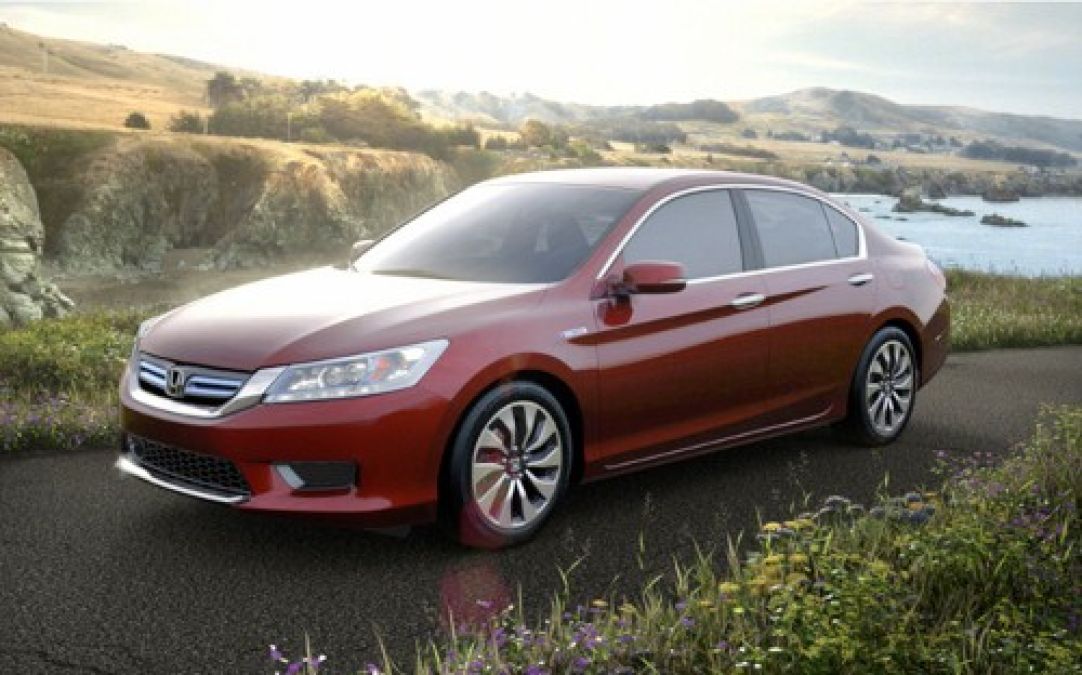In yesterday’s Torque News article on automobile, power grid integration, I was reminded by an astute Techy, that the Accord Plug-in is not a true stand alone EV (electric vehicle.) While I considered his observation to be a kin to splitting hairs over semantics, in the end I folded and edited what he considered to be a misleading title. Just for the record, Honda engineering does consider the FCEV and much of the hybrid series to be electric primary drive vehicles. in researching the engineering behind the Accord plug-in and the Accord Hybrid, I find the Hybrid to be the superior real world value for the dollar spent.
Here’s why.
Aesthetically the cars are twins. They both offer top of the line passenger accommodations, personal electronic interface, and world class fit and finish. The big difference starts at the dealership. For the privilege of (possibly) traveling in the diamond lane solo; due to the car’s plug-in EV status, you'll pay a $10,600.00. premium at time of purchase. For most buyers, that will add no less than $200 to the monthly payment.
While I agree that it would be fun to blow by a gas station for the work week while sipping on your morning cup of coffee, for me and countless millions, the 10 mile commute restriction without recharge is never going to happen. On any average work day I travel no less than 45 miles.The office is 14 miles from the house. I believe my daily mileage to be lower than average. My wife? forget about it…
I was reminded today by a reader that the Fit EV, is Honda’s only true EV marketed in the U.S. It offers an average 110 mile range between recharges. And, will do so in 3 hours. I believe that’s what Honda engineering is working on for the Accord. A 5 passenger true EV with a usable range. Fantastic, but for most of the nation the recharging of the EV will be enabled through a grid source that distributes fossil fuel generated electricity.
To truly create an ecologically sound electric vehicle we must turn to alternative methods of generation or co-generation. As well as jump light years in current battery technology.
Research would indicate that Honda has designed the Accord plug-in specifically for the California market. Governor Jerry Brown and friends have been very pro-active, low impact when it comes to CARB regulations. Honda finds its North American roots in Torrance, Ca., and is currently involved in several joint projects with the state, General Motors and the U.S. military.
What’s good for California, the largest automotive market in the nation is good for Honda.
O.K., for the rest of us so there is the possibility of a $2500 federal and matching state tax credit, and the fuzzy good all over feeling that comes to most when leaving a smaller ecological footprint on the planet. Here’s where I’m going with this…
The Accord Hybrid, for $10,000 fewer dollars, delivers a higher combined city/ highway mpg than the plug-in does. Why? I couldn't tell you. But I do know this, at 50+mpg city driving, most consumers will opt for the Hybrid over the plug-in model.
It’s simple Eco-nomics.






Comments
In researching the Accord
Permalink
In researching the Accord Hybrid, I find it to be a better over-all value for the dollar than the Accord Plug-In. However, the winds of change suggest that Honda is working on a "true" EV 5 passenger midsize sedan. Perhaps that's what Honda ultimately has in mind for the Accord.
I think the Accord PIH has 2
Permalink
I think the Accord PIH has 2 separate ratings. One is about 115MPGe. That number includes its use of a full charge of electricity. This is common with PIH vehicles. Interestingly, the plug-in is actually more efficient than many EVs. Don't yell at me - yell at your government if you don't like MPGe. The reason the PIH is not as efficient when operated as a hybrid (negating the full charge at start) is because it wicked -way more- lots- heavier. I've not seen it first hand, but I read closely about the two cars. They are almost identical except that the PIH has a significantly larger battery.
Honda is all set now. If battery density in terms of range per pound and / or range per dollar drop, Honda has an EV. It is the PIH car. In this particular Honda the setup is like a Volt. The gas engine generally is not driving the car. It is charging the batteries and the EV system is propelling the car.
Regardless of how good batteries get the truth is that cars like this PIH will always have the edge on true EVs.
As a Fit EV owner, I can tell
Permalink
As a Fit EV owner, I can tell you with assurance that it has a range of approximately 80 miles if driven carefully in optimal conditions. Hypermilers have occasionally managed over 100 miles on a single charge, but that result is rare and requires very careful driving.
Drivers in cold-weather climates report that the range can drop more than 50% on snowy days when temps are in the teens.